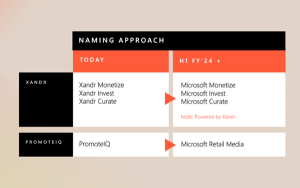by Elie Ashery, September 24, 2014,
I’m a news junkie! I admit it! I can’t get enough news and analysis on Middle East conflicts, stock market trends, sports picks, and celebrity gossip. I almost always have two news channels running simultaneously in my house and at my desk at work. To continually feed my habit every waking hour, I subscribe to no fewer than 137 daily email newsletters, from big-name publishers to small niche bloggers, and I scan almost all of them on my four-inch iPhone 5s screen.
In general, my daily email newsletter habit saves me a lot of time. It’s quicker than jumping from app-to-app or site-to-site to satisfy my fix. However, at times I get frustrated and stumble from the routine of using my right thumb to scroll down and click.
This frustration usually happens when I encounter a mobile-unfriendly newsletter, forcing my left index finger and thumb to start pinching and stretching across my iPhone’s screen. My eyes dilate to discern the extra small fonts, while my genetically oversized thumb has to switch from a vertical to a horizontal scroll.
After I get a taste of the initial snippet of an interesting story, my desire to indulge in the rest takes over my brain. I use my thumb to forcefully scroll right, then left, frantically searching for the “read more” link or button, finally seeing the little blue words seducing me into action. As I take a deep breath to lift my thumb, I subconsciously notice the edge of a social media sharing image positioned nanometers from my objective. My thumb hits the screen, and a cold feeling immediately overcomes me with the thought that I missed. Sure enough, my Facebook app opens, with a prompt to share the story I that I’d just wanted to finish reading. “Crap!” I say. After repeating this narrative between 50 and 60 times daily, I’ve started being more selective with the publishers I interact with.
The phenomenon of online media not accommodating mobile email is not isolated to a small percentage of the industry, nor to a segment of its respective demographics. It’s a systemic issue that’s a disservice to publishers’ subscribers and brand. In an era of fragmented audiences and shortened attention spans, publishers can’t afford to marginalize the power of mobile email by ignoring responsive design. More importantly, publishers’ lackadaisical interest in mobile email is counterproductive to their cries of low CPM rates and quality traffic.
When I ask publishers why they don’t embrace responsive design, their answers range from technical ignorance to outdated design ideology. Whichever their answers, most fit in the confines of a flimsy excuse and are akin to shooting one’s self in the foot, purposely!
Fortunately, adopting responsive design is easy, and can be fully integrated into a publisher’s repertoire of daily email. The publishers who do eventually make the responsive design jump notice a substantial increase in engagement and monetization. It’s not unheard of for open rates to increase by 20% or 30%, and CPMs to reach up to $8 or more for standard display ads alone. Given these tangible benefits, it’s baffling why publishers aren’t there yet.
The economics of a widely used, open platform like email are such that when there’s an issue with functionality, the market rushes in to correct it. Uniform rendering across disparate email clients is a byproduct of trying to fix broken HTML. Publishers should expect similar efforts from developers trying to dictate subscriber experience to their email clients.
(318)
Report Post






